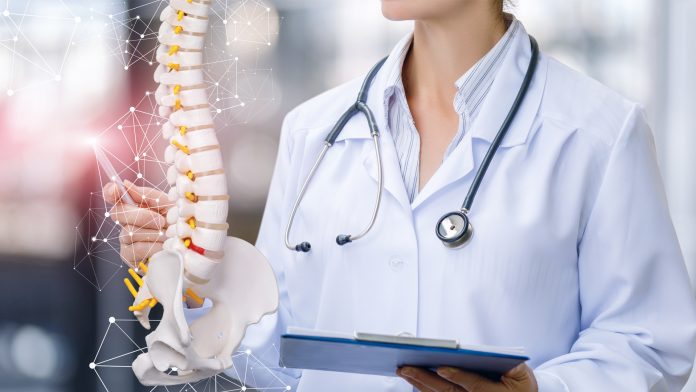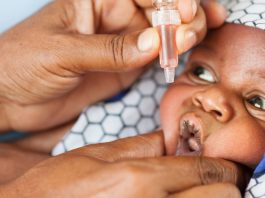EUROSPINE outlines its mission and how it works to achieves its vision for spine care, whilst also discussing issues such as challenges resulting from the COVID-19 pandemic.
Founded in 1998 in Innsbruck, Austria, and formerly known as both the European Spine Society (ESS) and the European Spinal Deformity Society (ESDS), EUROSPINE, the Spine Society of Europe, is a dynamic, international society of over 8,600 spine specialists from 80 countries who represent the full spectrum of spine care disciplines. Its vision is to be the driving force as well as the primary and preferred partner in Europe for all spinal care issues. This includes EUROSPINE’s vision to:
- Promote improvements in patient care;
- Support the prevention of spinal disorders;
- Provide and support best practice lifelong learning and research in spinal disorders;
- Bring together all spine-related European stakeholders across disciplines, cultures and countries.
All initiatives driven by EUROSPINE have one important goal: improving the standard of spine care for patients all over the world.
Today, the Society offers a multidisciplinary education programme that is second to none, hosts content-rich scientific meetings, supports research and brings together renowned specialists, national societies and stakeholders from all over the globe and empowers patients.
Accessible spine education for all
EUROSPINE’s best-practice education programme offers innovative learning opportunities for spine specialists at all stages of their career. The society provides comprehensive diploma programmes with new e-learning modules, making spine education more accessible than ever before. A new era in spine education has begun with the introduction of a new programme for non-surgical treatment, the EUROSPINE Diploma in Interprofessional Spine Care (EDISC). The educational offering has been supplemented with #SpineTuesday, a webinar series that focuses on updates and highlights in spine care intended for all spine care professionals.
Establishing a core curriculum through UEMS
EUROSPINE and its members are leading the way in establishing a core curriculum for spine surgery with the European Union of Medical Specialists (UEMS). UEMS is an international non-profit organisation representing all medical specialists in Europe and also has the accrediting body EACCME. A draft of the UEMS-MJC Spine Surgery core curriculum has already been prepared and will now be formulated into European Training Requirements in Spine Surgery, to be presented along with other specialties to the European Parliament. Once the core curriculum has been approved, it will be our goal to have the EUROSPINE Diploma Programme officially accredited.
Education and networking at its best
EUROSPINE’s annual meetings are an ideal forum for sharing knowledge. They are recognised internationally as premier events in the spine world. Known for their top-level, well-balanced scientific content and educational sessions, animated debates, industry workshops, and presentations on the latest technical innovations, delegates have the opportunity to exchange ideas with the greatest minds in spine today.
Excellence in research: vital for patient care
Through its efforts to foster and support the spine research community, EUROSPINE aims to facilitate the delivery of excellence in research, leading to the very best care for spine patients. The Society places a high priority on research and stimulates, facilitates, and promotes an active research community within EUROSPINE.
Some of the biggest developments in terms of spinal research in recent years and their impact include:
- A better understanding of the impact of psycho-social factors of the prognosis of spinal disorders;
- The importance of considering an interdisciplinary approach in the management of back and
- neck pain;
- Understanding that most clinical treatments have very little effects on the recovery of patients with common spinal pathological conditions;
- The demonstration that for common low back pain, spinal surgery and other invasive interventions do not provide more benefits than conservative care;
- A better understanding of the chronic recurrent course of back and neck pain; and
- Understanding that low back pain is the one of the leading causes of disability in the world.
- The key areas of current focus for researchers into spinal disorders include:
- Interaction between spinal pain and comorbidities (especially mental health);
- Understanding the impact of the environment (work, family, social life, policies) on the development of spine-related disability;
- The etiology of back and neck pain in children; and
- The prognosis of back and neck pain in the elderly.
Top-quality care for patients
The recently-created accreditation programme, Surgical Spine Centres of Excellence (SSCoE), is clear proof of EUROSPINE’s interest in promoting excellence in spine care around the world. The purpose is to certify spine centres which meet strict quality standards in the provision of patient care, spine surgery, and education, among other criteria. SSCoE certification provides a guarantee to patients that they will receive a high-quality standard of care in any approved clinic in Europe. We are looking forward to certifying a number of additional clinics next year.
Documenting safety and effectiveness of spine care treatments and technologies
The new Spine Tango registry platform offers a comprehensive implant database and feedback services to clinicians, hospitals, and medical device manufacturers. The data collected provides clear evidence on prevention, treatment effectiveness, patient safety, and best practice, supporting spine-related learning and research.
Establishing global networks of spine professionals
EUROSPINE’s EuSSAB, the European Spine Societies Advisory Board, is a communication platform where national societies meet and connect on a regular basis as equal partners – defining common goals, identifying and addressing challenges, and helping to locate the brightest minds in spine. EuSSAB’s network with wide geographical distribution and precise local knowledge enables sharing of minds and an effective and successful tool to find and identify new talent.
Helping patients make informed decisions
In addition to digital platforms for medical professionals, EUROSPINE also offers a platform to empower patients to learn about their condition. Patient Line provides reliable information in 14 languages to help patients understand and discuss treatment options with their healthcare provider and is considered one of the best information sources in Europe for patients with spine ailments.
Challenges in the COVID-19 context
The noticeable effects of the COVID 19 pandemic on spinal care can be attributed to various factors, such as the reallocation of hospital resources (e.g. nurses and intensive care beds) to care for patients with the coronavirus and cancelling elective surgeries to reduce the chance of the disease spreading. The combination of both factors has led to drastic changes in the daily routine not only of the spinal surgeon, but also of other professional groups involved in spinal care.
In order to ensure the care of COVID-19 patients, non-urgent operations were scaled back due to government recommendations. As a result, the majority of surgeons focused on emergency surgery instead. For the patient, the delay of elective operations can lead to physical (decline of skeletal muscle tissue with age, frailty etc.) and psychological (depression; pain management strategies such as pain medication abuse, etc.) stress.
The future of spinal care
With demographic changes and changing lifestyle, the world is witnessing more spine problems than ever before. With technological, biological, medical, and surgical advances, the future is bright for improved standards of care in spine related disorders. In a scenario reaching beyond individual nations’ needs, it is necessary to develop strategies to improve access to affordable and quality spine care. EUROSPINE aims to prioritise the most urgent aspects of future developments in spine care, including:
- Identifying and understand the most promising advances in spine care which could help improve access to quality spine care; and
- Strengthening strategies on how to improve global access to these advancements in spine care like telemedicine, day care spine centres, virtual reality, or robotics in spine therapy.









